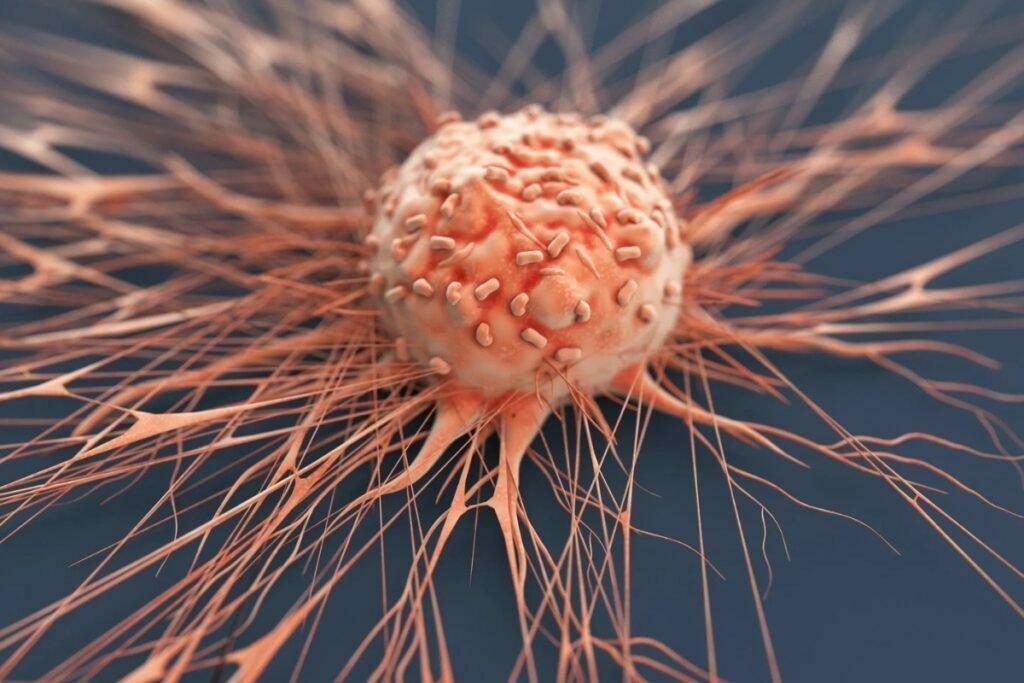ABSTRACT NUMBER: 7506
Epcoritamab, a novel bispecific antibody targeting CD3 and CD20, has demonstrated potent T-cell-mediated cytotoxic activity against CD20-positive malignant B cells. At the ASCO Annual Meeting 2023, an extensive analysis was presented, combining data from cohorts 2a and 2b of the ongoing Phase I/II EPCORE NHL-2 trial. This trial focuses on evaluating the efficacy of epcoritamab in combination with rituximab and lenalidomide (R2) therapy for patients diagnosed with B-cell non-Hodgkin lymphoma, specifically relapsed or refractory follicular lymphoma.
In arm 2a of the trial, relapsed or refractory CD20-positive follicular lymphoma patients received subcutaneous epcoritamab at a dose of 48 mg in combination with R2 therapy over a 12-cycle treatment regimen. Arm 2b involved a different dosing schedule where epcoritamab was administered once weekly for the initial two cycles and then every four weeks for subsequent cycles. Treatment duration for both arms extended up to two years.
The analysis included 104 patients who received the combination therapy of epcoritamab and R2 therapy at a dose of 48 mg. The overall response rate (ORR) was an impressive 98%, with an ORR to the immediate prior therapy of 85% at the data cutoff. Complete metabolic response (CMR) was achieved in 87% of patients with epcoritamab, compared to 58% with the previous therapy. Partial metabolic response (PMR) was observed in 12% and 27% of patients, stable disease in 1% and 5%, and progressive disease in 1% and 7%, respectively, for each treatment arm.
Consistently high ORR and CMR rates were observed across various subgroups, with an ORR of 95% or higher in all groups. Patients who experienced disease progression within 24 months (POD24) demonstrated a 75% CMR and 22.5% PMR, resulting in an overall ORR of 98%.
Regarding safety, the analysis included 111 patients, and treatment-emergent adverse events (TEAEs) of Grade 3 or higher were observed in 76% of patients, with 41% related to subcutaneous epcoritamab administration. Immune effector cell-associated neurotoxicity syndrome occurred in 2% of patients, with a median resolution time of 5.5 days.
Treatment delays due to TEAEs were necessary for 61% of patients, with 29% of those delays specifically related to subcutaneous epcoritamab. Thirteen percent of patients discontinued subcutaneous epcoritamab, and 5% discontinued treatment due to this administration method.
Cytokine release syndrome (CRS) events were predictable, mostly of low grade, and all events resolved. The median time to resolution was 3 days, and 13% of patients received tocilizumab treatment. No patients discontinued subcutaneous epcoritamab due to CRS.
Overall, the combination therapy of epcoritamab and R2 therapy showed promising efficacy with high response rates in relapsed or refractory follicular lymphoma patients. The safety profile was consistent with previous reports, and adverse events were manageable. These findings highlight the potential of epcoritamab as a valuable treatment option for patients with CD20-positive B-cell non-Hodgkin lymphoma.





























